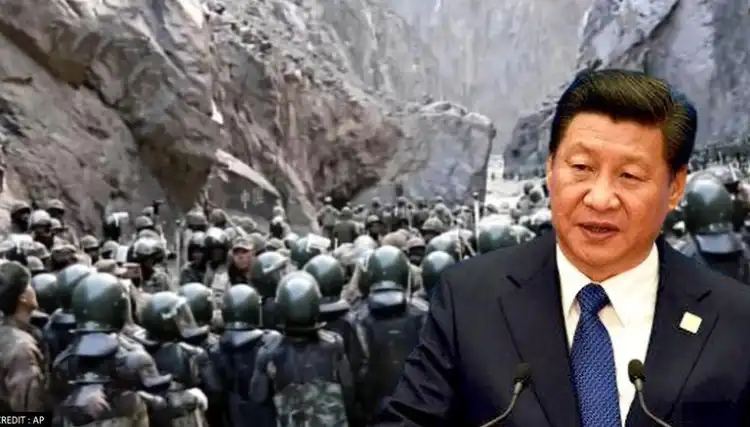The Chinese government, led by the Communist Party of China (CPC), has been accused of being biased in its actions and policies. There are several reasons why this perception exists.
One of the main reasons is the government’s control over the media and censorship. The CPC tightly controls the flow of information within the country, and has been known to suppress and censor news and information that is deemed to be critical of the government or its policies. This can lead to a skewed portrayal of events and issues, and can create a perception that the government is biased in its reporting.
Another reason for perceptions of bias is the government’s suppression of dissent and restriction of freedom of speech. The CPC has been known to punish those who speak out against the government or its policies, through imprisonment or other means. This can create a culture of fear, where people are hesitant to speak out and express their opinions, leading to a lack of diversity in the public discourse.
Additionally, the Chinese government’s one-party system can lead to a lack of checks and balances, which can contribute to perceptions of bias. With no opposition party to provide counterbalance, the CPC has a significant amount of power and control, which can lead to policies that favor the party and its members over the general population.
Furthermore, the Chinese government’s treatment of ethnic and religious minorities, such as the Uyghurs and Tibetans, has also been a source of criticism. The Chinese government has been accused of human rights violations, including forced labor, arbitrary detention, and forced assimilation, which have led to perceptions of bias and discrimination against these groups.
Censorship plays a significant role in shaping public perceptions of the Chinese government. The Chinese government maintains tight control over the flow of information through various forms of censorship, including internet censorship, media censorship, and censorship of books and other publications. This censorship is aimed at controlling the narrative and limiting public access to information that may be critical of the government or its policies.
The Chinese government heavily censors the internet, with a vast network of censorship and surveillance known as the “Great Firewall of China”. This censorship blocks access to foreign websites and platforms such as Google, Facebook, and Twitter, and monitors online activity for keywords and phrases deemed sensitive by the government. This censorship also includes the use of bots and human moderators to control the spread of certain information on social media platforms like Weibo and WeChat.
Media censorship is also strict in China, with state-controlled media outlets being the only sources of news and information for the majority of the population. These outlets are required to conform to the government’s official line, and any reporting that deviates from this line is quickly suppressed. This censorship also extends to foreign media outlets operating in China, which are required to self-censor their reporting to avoid running afoul of government regulations.
Censorship of books and other publications is also widespread in China, with the government heavily controlling the content of these materials. Books that are critical of the government or its policies are often banned, and authors and publishers who produce such works may face severe penalties.
What are common social issues in China?
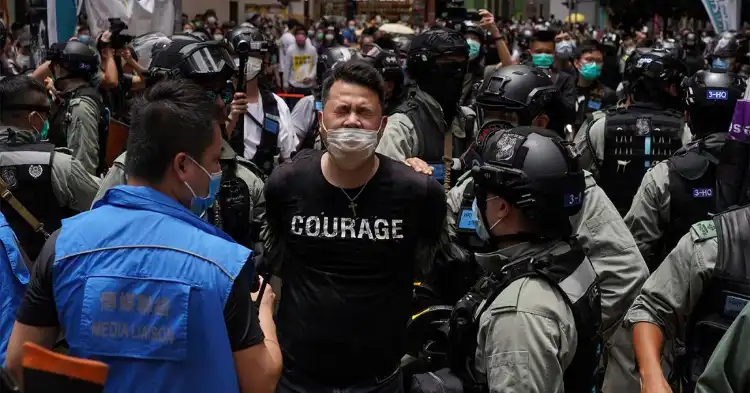
China faces a complex web of social issues, from income inequality and environmental degradation to human rights violations and censorship. Despite its rapid economic growth, the country must address these issues in order to ensure a sustainable and just society for all its citizens.
There are several social issues that are prevalent in China today. Some of the most common include:
- Income inequality: Despite China’s rapid economic growth, income inequality remains a major issue in the country. The gap between the rich and the poor continues to widen, and many people in rural areas and smaller cities struggle to make ends meet.
- Pollution: China’s rapid industrialization and urbanization have led to severe pollution problems in many areas of the country. Air and water pollution are particularly severe, and have led to health problems for many Chinese citizens.
- Corruption: Corruption is a pervasive problem in China, and has been cited as one of the major obstacles to the country’s development. Many officials at all levels of government are accused of taking bribes and embezzling public funds.
- Demographic challenges: China’s one-child policy, which was in effect for several decades, has led to an aging population and a shortage of young workers. This has created a number of economic and social challenges for the country.
- Political repression: The Chinese government is known for its strict control over political expression and censorship of the media. Human rights activists and political dissidents are often arrested and detained, and freedom of speech is limited.
- Rural-Urban divide: The rural population in China is facing a number of challenges, including limited access to education, healthcare and other basic services. Many rural residents have migrated to urban areas in search of better opportunities, which has led to a significant rural-urban divide.
- Social mobility: The Chinese society is still very hierarchal, where the opportunities are limited to those who have connections and wealth, making it hard for people from lower classes to move up the social ladder.
- Mental Health: The fast-paced lifestyle, pressure to succeed and lack of social support have led to a high rate of mental health issues among the population, which is still stigmatized and often not addressed by the society.
Stand of the Chinese Government on the COVID-19 Pandemic
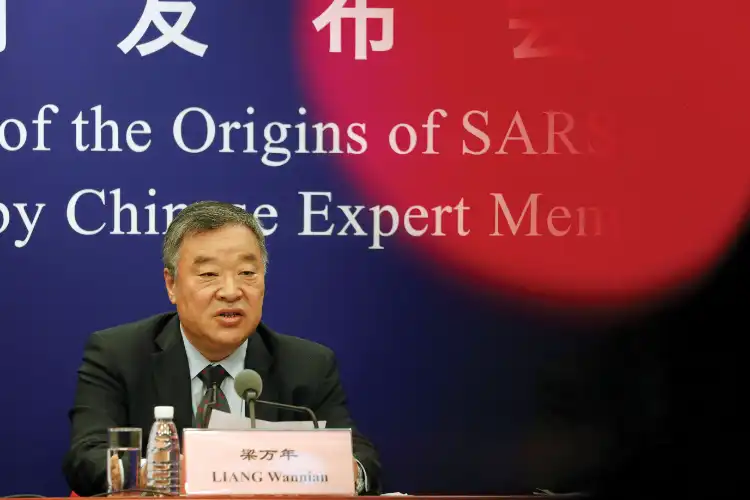
The Chinese government’s response to the COVID-19 pandemic has been marked by both swift and decisive action, as well as initial attempts at downplaying the severity of the outbreak. As the situation worsened, the government implemented strict quarantine measures, increased testing and contact tracing efforts, and provided aid and medical supplies to other countries affected by the pandemic.
The Chinese government initially sought to downplay the severity of the COVID-19 pandemic and suppress information about it, which led to criticism from other countries and organizations. However, as the situation worsened, the government implemented strict quarantine measures and increased testing and contact tracing efforts in an attempt to contain the spread of the virus. The Chinese government also provided aid and medical supplies to other countries affected by the pandemic.
The relationship between China and America
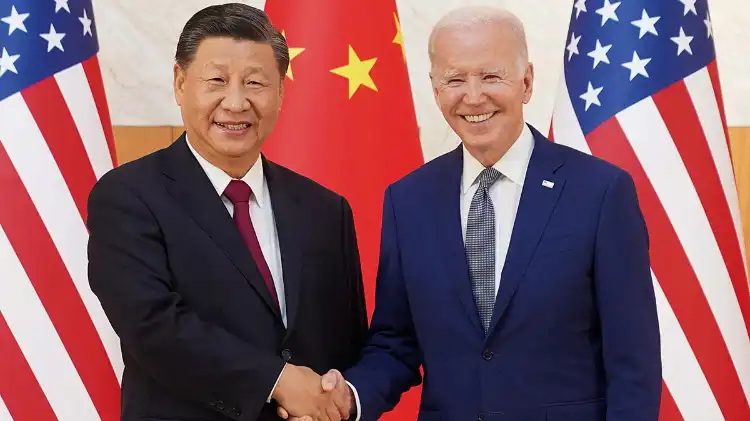
The relationship between China and America is complex and multifaceted, marked by both cooperation and competition. While the two countries have a significant economic relationship and work together on issues such as climate change, there are also significant tensions, particularly in the areas of trade and human rights.
The relationship between China and the United States has been complex and multifaceted, with a mix of cooperation and competition. In recent years, there has been a significant deterioration in the relationship, with tensions arising from a range of issues such as trade, human rights, and territorial disputes.
One of the main areas of tension in the relationship has been trade. The United States and China are two of the largest economies in the world, and have been major trading partners for decades. However, in recent years, the United States has taken a more confrontational stance on trade with China, accusing the country of unfair trade practices and imposing tariffs on Chinese goods. This has led to a trade war between the two countries, which has had a negative impact on both economies.
Another area of tension in the relationship has been human rights. The United States has long been critical of China’s human rights record, particularly in relation to the treatment of ethnic and religious minorities, such as the Uyghurs, and the suppression of dissent and freedom of speech. The US has also imposed sanctions on Chinese officials for human rights abuses.
Territorial disputes have also been a source of tension between the two countries. China has territorial disputes with several of its neighbors, including Japan, the Philippines, and Vietnam, and has been accused of aggressive behavior in the South China Sea. The US has been critical of China’s actions in the region, and has increased its military presence in the area to counter China’s territorial claims.
In addition to these issues, there are also concerns about China’s economic and military expansion, as well as its influence on international organizations and its relationship with other countries. The US have also expressed concerns over the Chinese government’s handling of the COVID-19 pandemic and the disinformation campaign.
Despite the challenges in the relationship, there are also areas of cooperation between the two countries. For example, China is a key partner in the fight against climate change, and the two countries have worked together on issues such as nuclear non-proliferation and counter-terrorism.
The relationship between China and India
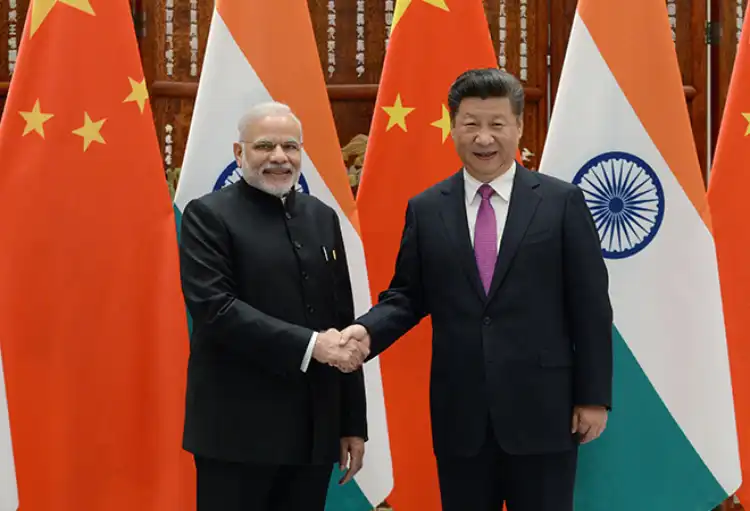
The relationship between China and India is marked by a history of border disputes and strategic competition, but also cooperation on economic and global issues. Both nations are among the world’s largest and fastest growing economies, but the relationship has seen its share of friction and tensions, particularly in recent times.
The relationship between China and India has a long and complex history, marked by both cooperation and competition. In recent years, tensions have risen between the two countries, particularly in the areas of border disputes, trade, and influence in the region.
One of the main areas of tension in the relationship has been border disputes. China and India have a long-standing dispute over the boundary between the two countries, known as the Line of Actual Control (LAC). The dispute has led to a number of incidents, including military standoffs, and has been a source of tension between the two countries.
Another area of tension in the relationship has been trade. China is one of India’s largest trading partners, and the two countries have significant economic ties. However, in recent years, India has taken a more confrontational stance on trade with China, particularly in light of the large trade deficit in favor of China. India has also taken steps to reduce its dependence on Chinese imports and to promote “Make in India” initiative.
Additionally, both countries have been competing for influence in the region, particularly in countries like Sri Lanka, Nepal, and Bangladesh. China has been investing heavily in infrastructure projects in these countries, while India has been providing aid and development assistance. This competition has led to concerns about a “great game” between the two countries in the region.
Despite these challenges, there are also areas of cooperation between China and India. The two countries have a history of engagement on regional and global issues, and have worked together on issues such as climate change, counter-terrorism and nuclear non-proliferation. In recent years there have been some high level visits and talks to deescalate the tensions between the two countries.
The relationship between China and Nepal

The relationship between China and Nepal is one of historical and cultural ties, marked by political and economic cooperation. China has been a key source of economic aid and investment for Nepal, particularly in infrastructure development, and has supported Nepal’s efforts to become a land-linked nation. However, the relationship has also been challenged by Nepal’s close ties with India and rising anti-China sentiments among the Nepalese people.
The relationship between China and Nepal is one of historical and cultural ties, but it has also been marked by political and economic cooperation. Both countries share a long history of cultural exchange and religious influences, with many Nepalese people practicing Buddhism, which has its origin in China. The two countries also share a border, and the relationship has been strengthened by the fact that China is Nepal’s northern neighbor.
In recent years, China and Nepal have made efforts to strengthen their political and economic ties. China has provided significant economic aid and investment to Nepal, particularly in infrastructure development, and has also supported Nepal’s effort to become a land-linked nation rather than landlocked one. China’s Belt and Road Initiative (BRI) has been a key driver of economic cooperation between the two countries, with China investing in Nepal’s transportation and energy infrastructure.
However, despite the close relationship, there have also been challenges and tensions in the relationship between China and Nepal. One of the major challenges has been Nepal’s relationship with India, which has traditionally been close and continues to remain so. India has been concerned about China’s growing influence in Nepal, and has expressed its opposition to some of the infrastructure projects that China has invested in.
In addition to this, there has also been a rise of anti-China sentiments among the Nepalese people in recent years, particularly in relation to the increasing number of Chinese visitors and workers in Nepal. This has led to protests and calls for stricter regulations on Chinese workers and businesses in Nepal.
The relationship between China and Pakistan
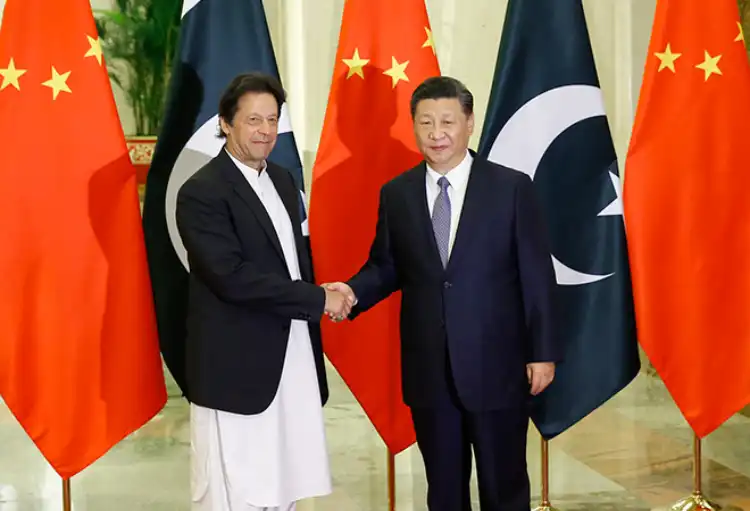
The relationship between China and Pakistan is often described as “all-weather friendship,” characterized by strong political, economic, and military ties. China has been a major economic partner of Pakistan and has provided significant aid and investment, while Pakistan has been a reliable supporter of China on various international issues. However, the two countries relationship has been questioned by some due to the human rights issues in Pakistan and the increasing economic and military influence of China in the region.
The relationship between China and Pakistan is one of the closest and most enduring relationships in the international arena. The two countries have a long history of friendship and cooperation, which has been built on a foundation of shared strategic interests and common values.
One of the main drivers of the relationship between China and Pakistan is their shared interest in regional stability and security. Both countries have been concerned about the activities of separatist and extremist groups in their respective regions, and have cooperated closely on counter-terrorism and security issues. They have also cooperated on issues related to regional stability and peace, such as the Afghan peace process.
Another major area of cooperation between China and Pakistan has been in the field of economic development. China has been a key partner for Pakistan in terms of economic assistance and investment, and has played a critical role in the development of Pakistan’s infrastructure, including the construction of major highways, railways and ports. The two countries have also cooperated on energy projects, with China investing in Pakistan’s hydroelectric, coal and nuclear power plants.
Additionally, China and Pakistan have cooperated on other areas such as science and technology, culture, and education. They have also worked together to promote the rules-based international order and to challenge the unipolarity of the United States.
Despite these areas of cooperation, there have been some challenges to the relationship between China and Pakistan. For example, some have criticized China’s policy of non-interference in Pakistan’s domestic affairs, arguing that it has allowed Pakistan to avoid addressing human rights abuses and other domestic issues. Additionally, there have been concerns about the potential for economic domination by China in Pakistan, which could be detrimental to Pakistan’s economy and sovereignty.
The relationship between China and Russia
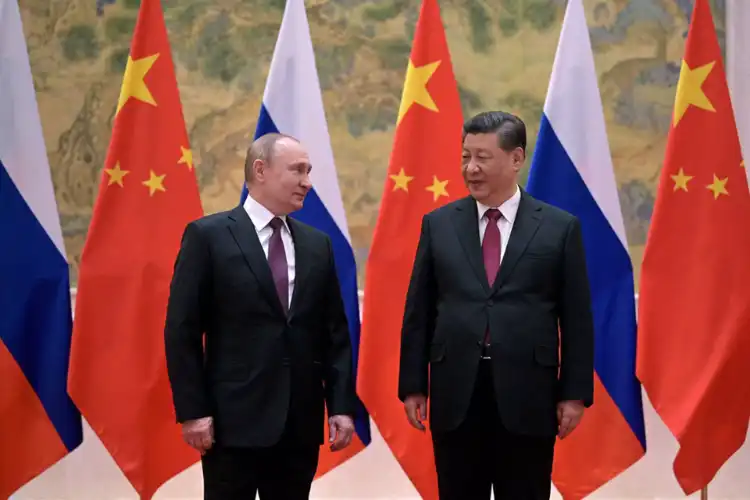
The relationship between China and Russia is one of strategic partnership, marked by mutual cooperation on economic, political and security issues. Both nations have a shared interest in challenging the dominance of the United States and its allies in global affairs, and have cooperated on issues such as energy, trade, and regional security. However, there have been some areas of competition such as in Central Asia and the Arctic.
The relationship between China and Russia has evolved over the past few decades, from one of rivalry to one of cooperation and partnership. Despite some areas of competition, the two countries have developed a strong strategic partnership based on shared interests and values.
One of the main areas of cooperation between China and Russia has been in the field of trade and economics. The two countries have a long-standing relationship, and China is now Russia’s largest trading partner. They have also established a number of economic and trade agreements, including the establishment of a joint investment fund to promote trade and investment between the two countries.
Another area of cooperation between China and Russia has been in the field of security and defense. The two countries have a shared interest in maintaining stability in the region and have cooperated on a number of security issues, including counter-terrorism and the proliferation of weapons of mass destruction. They have also conducted joint military exercises and have signed agreements on military-technical cooperation.
Additionally, both countries have been working together to promote the rules-based international order and to challenge the unipolarity of the United States. They have jointly opposed the military interventions of the US and its allies, and have called for a new world order based on multipolarity and respect for sovereignty and non-interference in the internal affairs of other states.
Despite these areas of cooperation, there are also some areas of competition between China and Russia. For example, both countries have competing interests in Central Asia and the Arctic, and there have been some tensions over the allocation of resources in these regions. Additionally, China’s economic rise has led to concerns in Russia about the potential for economic domination by China.
The relationship between China and Taiwan

The relationship between China and Taiwan is complex and contentious, marked by longstanding political and territorial disputes. China claims Taiwan as part of its territory and refuses to recognize its independence, while Taiwan asserts its sovereignty and independence. The two sides have engaged in diplomatic and economic relations, but the political situation remains unresolved and is a source of tension in the region.
The relationship between China and Taiwan, officially known as the Republic of China (ROC), is complex and has been a source of tension for decades. The People’s Republic of China (PRC) claims Taiwan as part of its territory, while Taiwan considers itself to be an independent country.
One of the main issues at the heart of the tensions between China and Taiwan is the question of Taiwan’s sovereignty. The PRC claims that Taiwan is an integral part of its territory, and has never recognized the ROC as an independent country. Taiwan, on the other hand, considers itself to be a sovereign state with its own government and political system.
Another key issue is the status of Taiwan in the international community. China has used its economic and diplomatic power to isolate Taiwan, by pressuring other countries not to recognize Taiwan diplomatically and to exclude Taiwan from international organizations. Taiwan, on the other hand, has sought to increase its international visibility and to build stronger ties with other countries.
Additionally, the relations between China and Taiwan have been affected by the changing political landscape in Taiwan. The recent shift to pro-independence parties in Taiwan has led to increased tensions between China and Taiwan, as China has warned of severe consequences if Taiwan officially declared independence.
Despite these challenges, there have been some efforts to improve relations between China and Taiwan. For example, there have been a number of unofficial exchanges and dialogue between the two sides, and there have been some limited economic and trade agreements. Additionally, both sides have expressed a desire to maintain peace and stability in the region.
The relationship between China and Sri Lanka
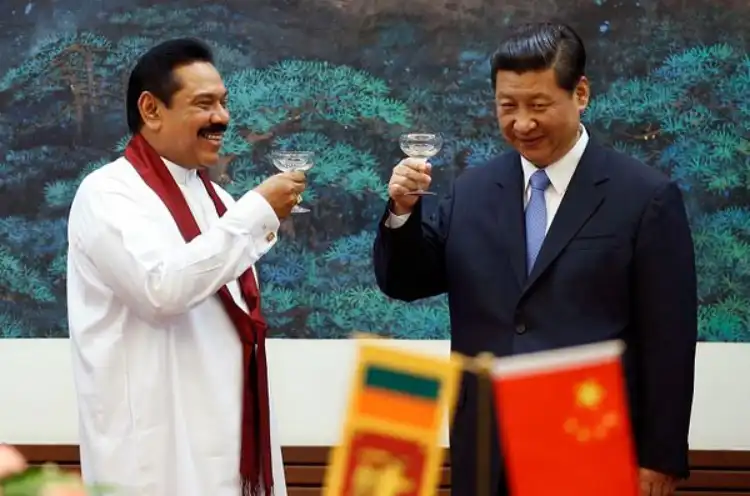
The relationship between China and Sri Lanka is one of increasing economic and strategic cooperation, with China investing heavily in Sri Lanka’s infrastructure and development projects. However, this relationship has also been criticized for its lack of transparency and for the negative impact on Sri Lanka’s debt situation. In addition to that, there are concerns about China’s increasing military presence in the Indian ocean region and its impact on the balance of power in the region.
The relationship between China and Sri Lanka has grown in recent years, primarily driven by economic and strategic interests. China has viewed Sri Lanka as an important partner in its Belt and Road Initiative (BRI), an ambitious global infrastructure development strategy, while Sri Lanka has sought Chinese investment and loans to boost its economic development.
One of the main areas of cooperation between China and Sri Lanka has been in the field of infrastructure development. China has invested heavily in Sri Lanka, funding and building major infrastructure projects such as highways, ports, and airports. One of the most notable projects is the construction of the Hambantota Port, which has been a source of controversy due to concerns over debt and potential Chinese control.
Another key area of cooperation between China and Sri Lanka has been in the field of energy. China has invested in Sri Lanka’s hydroelectric, coal and nuclear power plants, helping to address Sri Lanka’s energy needs and reduce dependence on fossil fuels.
The relationship between China and Sri Lanka has also extended to other areas such as tourism, education, and culture. China has been Sri Lanka’s largest source of tourists in recent years and has also provided scholarships for Sri Lankan students to study in China.
However, there have also been concerns about the relationship between China and Sri Lanka. Some have criticized China’s heavy investment in Sri Lanka as potentially exploitative, arguing that Sri Lanka is taking on too much debt and giving away too much control to China. Additionally, there have been concerns about the potential impact of China’s infrastructure projects on the environment and local communities.
The relationship between China and Japan

The relationship between China and Japan is one of historic tension, marked by disputes over territory, resources, and historical issues. Despite economic interdependence, political relations have been strained in recent years, particularly over the Senkaku Islands dispute. However, the two countries have made efforts to improve relations and increase cooperation on various issues, but the relationship remains complex and delicate.
The relationship between China and Japan has been complex and multifaceted throughout history. The two countries have had both friendly and hostile interactions, with periods of cooperation and competition.
Historically, the two nations have had a strained relationship due to Japan’s colonization and invasion of China in the late 19th and early 20th centuries. This period of aggression left deep wounds in China and continues to shape the relationship between the two countries to this day.
In more recent years, economic ties have been a major driver of the relationship between China and Japan. China is Japan’s largest trading partner and the two countries have significant investments in each other’s economies. However, this economic interdependence has not always translated into political cooperation.
Territorial disputes, particularly over the Senkaku/Diaoyu islands in the East China Sea, have been a major source of tension between China and Japan. Both countries claim sovereignty over the islands, and the dispute has led to increased military activity and diplomatic tension in the region.
Another major issue that continues to strain the relationship is Japan’s history of aggression and colonization of China. This history is still a sensitive topic for many Chinese, and Japan’s perceived lack of remorse for its actions has made it difficult for the two countries to improve relations.
Despite these challenges, there have been efforts in recent years to improve relations between China and Japan. Both countries have made efforts to engage in dialogue and build trust, and there have been some signs of progress.
The relationship between China, North Korea, and South Korea
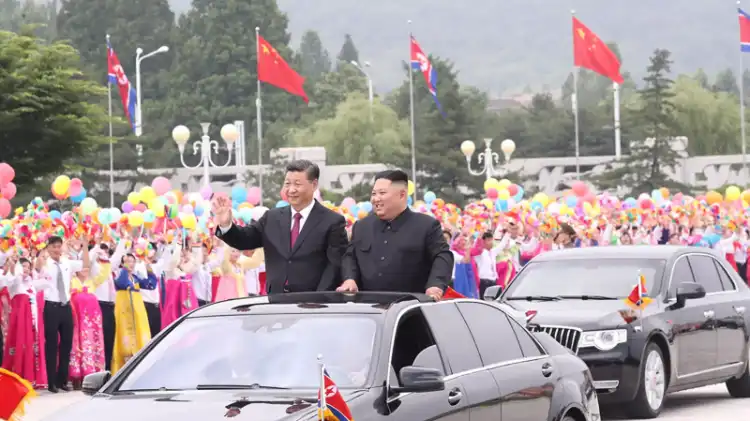
The relationship between China and North Korea is one of traditional allies, but it has been tested in recent years by North Korea’s nuclear weapons development and China’s support of United Nations sanctions against North Korea. Despite this, China remains North Korea’s largest trading partner and has provided economic and humanitarian aid to the country. China has also played a key role in diplomatic efforts to address the North Korea’s nuclear program, but the relationship remains fragile and uncertain.
The relationship between China, North Korea, and South Korea is complex and multifaceted, shaped by historical, political, and economic factors.
Historically, China and North Korea have had a close relationship, with China providing economic and military aid to North Korea since the Korean War. China has historically seen North Korea as a buffer state against the United States and South Korea and has been reluctant to take strong action against the North Korean government.
On the other hand, South Korea has traditionally had a more hostile relationship with North Korea. The two countries are technically still at war, as the Korean War ended in an armistice rather than a peace treaty. South Korea has also been a key ally of the United States and has been critical of North Korea’s nuclear weapons program.
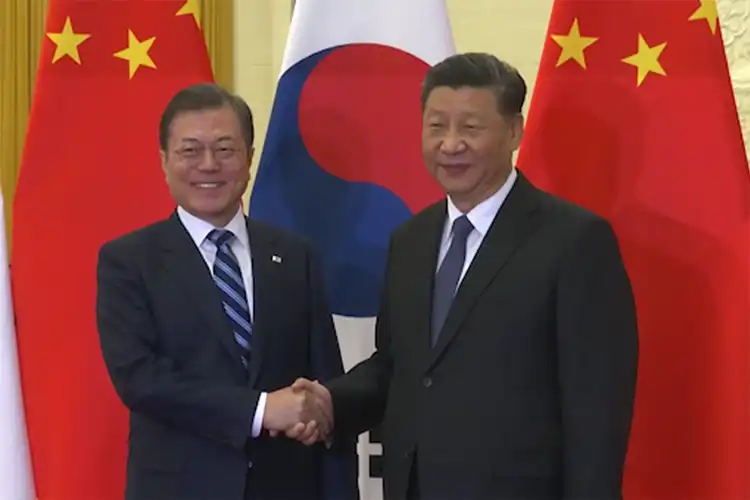
The relationship between China and South Korea has undergone significant changes in recent years, marked by growing economic ties and cooperation on regional issues, but also tensions over historical issues and trade. China is now South Korea’s largest trading partner, but there have been disputes over the deployment of THAAD missile defense system and China’s economic retaliation. Despite these challenges, the two countries have made efforts to improve relations and increase cooperation in various fields.
In recent years, the relationship between China and North Korea has become more complex. China has been increasingly frustrated with North Korea’s nuclear weapons program and has supported United Nations sanctions against the country. Despite this, China still sees North Korea as a buffer state and continues to provide aid to the country.
The relationship between South Korea and China has been more positive. The two countries have strong economic ties and have been working to improve political and cultural ties. South Korea has also been working to improve relations with North Korea, with the two countries holding several summits in recent years.
On the other hand, the relationship between North Korea and South Korea is still fraught with tension. North Korea’s nuclear weapons program and its human rights record continue to be major points of contention between the two countries. The two countries have also had a number of military incidents in recent years.

